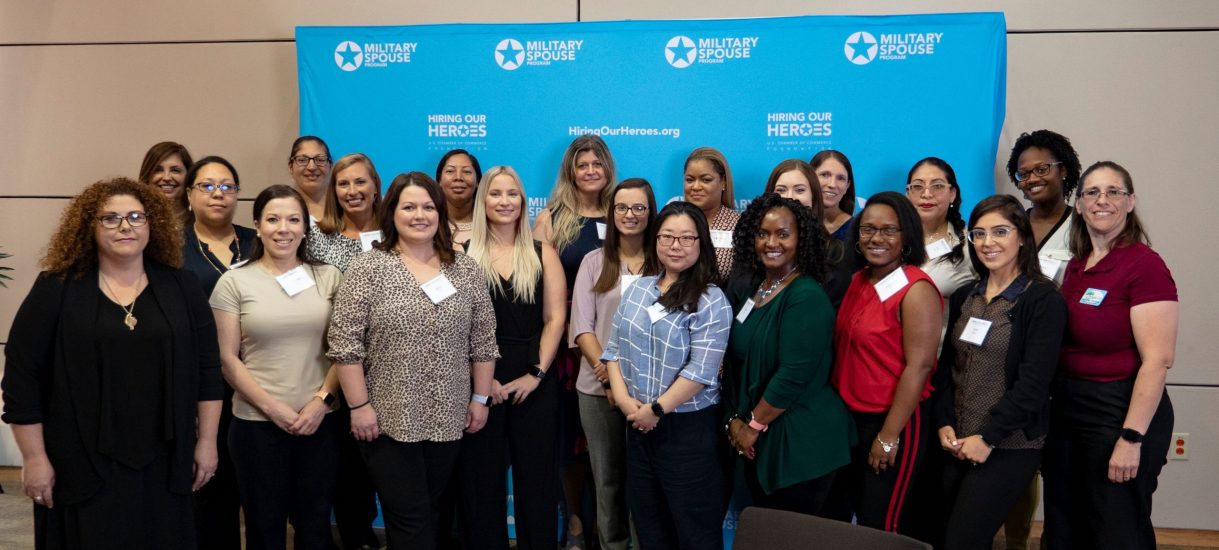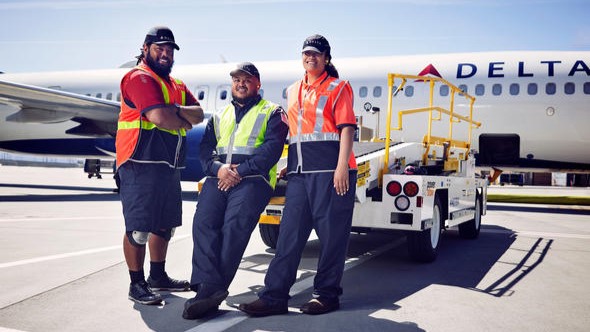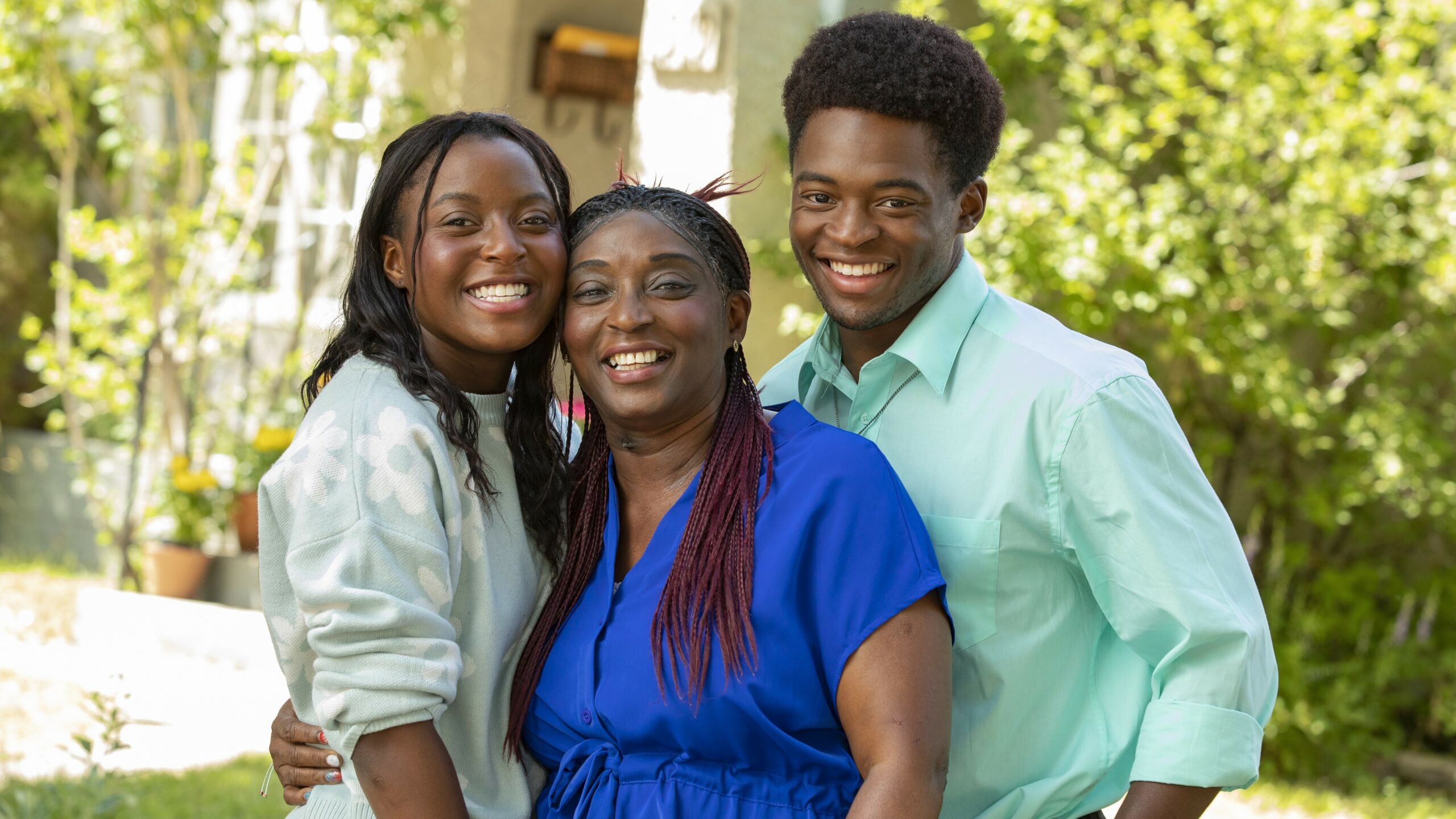“As a result of COVID-19, we’re seeing about 32% unemployment for military spouses.” That startling statistic from Meredith Lozar, the director of military spouse programs for Hiring Our Heroes (HOH), an initiative of the U.S. Chamber of Commerce Foundation. Hiring Our Heroes was started in 2011 to “bridge the military-civilian divide through employment opportunities for veterans and military spouses,” explains Lozar.
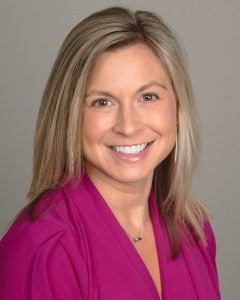
Lozar says since the launch of the initiative, there has been progress made on veteran unemployment. But she says, “We have not seen the same progress in moving the needle on military spouse unemployment.”
“The [military] spouse population is very underutilized and an untapped area,” says C.C. Gallagher, the president of Military Quality of Life Consulting (MQOLC). Gallagher began the consulting business in 2015 with a mission to advise a variety of clients – including corporations, government contractors, nonprofit organizations, national brands, foundations, and media outlets – to help them effectively support members of the military and their families.

Gallagher often works with companies who want to increase their veteran hiring. “For companies who are trying to build their talent acquisition pipeline, my biggest comment to these organizations is, ‘Don’t forget the military spouse’ because of the opportunities, education, experiences, attributes they bring into the workplace,’” reminds Gallagher.
Ninety-two percent of military spouses are women, according to Lozar. She adds, “Statistics tell us that 40% of military spouses have bachelor’s degrees. You’re also going to see many military spouses with master’s degrees and even, doctoral degrees. It’s a highly educated, highly skilled population.”
Gallagher says it’s important for spouses to understand how their skills may or may not move with a new permanent change of station (PCS). With one client and initiative, she says, “My goal was to reach out to military spouses and spouse-serving organizations to inform them of the DOL’s Military Spouse Interstate License Recognition Options as they move from state to state. What steps can they take? How do we look up legislation for their specific industry and try to expedite that licensure recognition?”
For almost four years, Gallagher, as a defense contractor, oversaw the web application development of the Military Spouse Employment Partnership Partner Portal under the Department of Defense. “It focuses on connecting employers and military spouses. Employers can search for resumes and spouses can search for job openings. I think right now there are over 450 companies who have dedicated to recruiting, hiring, and retaining spouses.” American Job Centers and Military OneSource are also good resources, according to Gallagher.
“I think this year has thrown us for a loop,” acknowledges Gallagher. She says the pandemic has made working particularly tough on spouses with children. “For spouses who were working [outside the home] and have young kids, you can’t leave them by themselves. [For those at home], they couldn’t take care of them while simultaneously working. Then you throw in remote learning. It’s impossible to work while teaching a child. So there’s a lot of stress.”
Both Gallagher and Lozar are military spouses. Gallagher has made six moves in 11 years with her husband Lt. Col. Cameron Gallagher on active duty with the Army. Over the course of 15 years, Lozar has moved 10 times with her husband Lt. Col. Nick Lozar, serving in the Marine Corps.
Before she founded MQOLC, Gallagher was devastated when she couldn’t remotely retain a job she held in the Washington, D.C. area. “I’m like ‘We’re moving again? This is so much.’”
Lozar can relate. “Sharing my own personal experience, there’s only been one time where I have been able to move with my job in all of those moves. I have quit every job and started over again.”
“Our research tells us that two out of 10 military spouses have experienced a remote role. But seven out of 10 say, ‘Oh my gosh, that is my ideal scenario.’ They want to have that remote work opportunity and they’ve never been afforded it,” adds Lozar.
Hiring Our Heroes has a number of resources to support military spouses. “Our mission is to develop military spouses. It is also to engage military spouses. And it is to help military spouses thrive,” explains Lozar. “These women move 10 times more frequently than their civilian counterparts.”
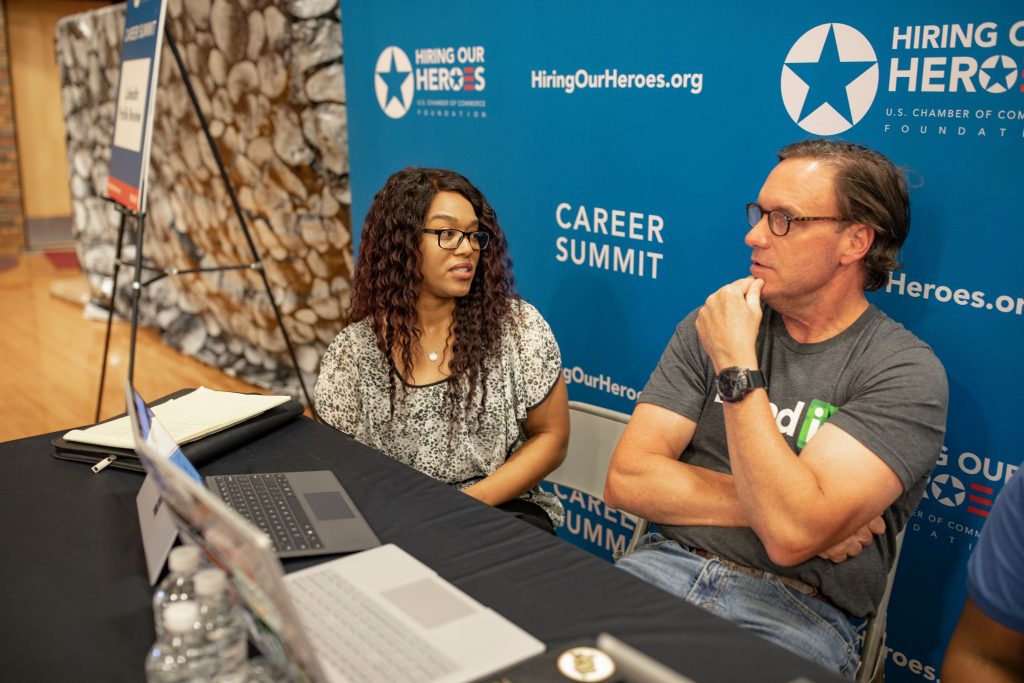
AMPLIFY provides spouses with career information on topics like salary negotiation and resume writing. “They also get mentorship provided by experts. So not only from our own staff, but also our employer partners,” says Lozar. The two-day event is typically in person, but HOH has been able to pivot this year to virtual offerings.
The Military Spouse Fellowship Program connects spouses with HOH’s corporate partners. “It does a match where basically it provides a test drive for the spouse and for the employer to spend six weeks together through a paid internship.”
Among the more than 200 participating employers that support HOH programs are Booz Allen Hamilton, Lockheed Martin Corporation, Prudential Financial, and Freedom Learning Group.
Noting the fellowship’s 85% placement rate, Lozar adds, “It helps us to meet some of our younger military spouses – who may just be starting out in this life – where they are in their career journey. We get an incredible generational span of spouses. So, it really is wonderful because it meets the needs of so many.”

Another HOH offering the Military Spouse Professional Network boasts 50,000 members worldwide, according to Lozar. With chapters around the world, “MSPN events and programming connect military spouses with established networks, giving military spouses access to local business leaders, peers, and mentors, and support in their career development.”
As military spouses, along with the rest of the world, navigate their way through the effects of COVID-19, Lozar and Gallagher are looking for silver linings.
Gallagher says the increase in telework should benefit military spouses. “Now that remote working is an opportunity, I feel like there’s a lot more flexibility for our community to get back in and focus on what industry we want to work within, and the jobs and opportunities we want.”
After conducting a small survey of employers about remote work, Lozar says, “The answers were amazing. Communication has remained strong. Productivity has not decreased. They felt their companies would make a continued commitment to remote work for certain roles.”
On the spouse side, Lozar adds, “Eighty percent either had or would upskill or reskill to a growth industry or a more durable career path. This is a population that is so willing to gain additional skills and to learn new things so that they can have that more portable, durable career.”
Recently, the Department of Labor offered a series of workshops designed to help military spouses navigate the workplace. The DOL plans to make the Transition Employment Assistance for Military Spouses (TEAMS) workshops available next year to military spouses around the world.

